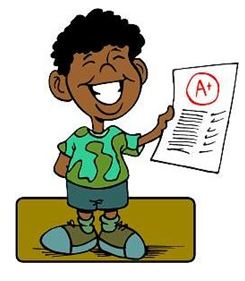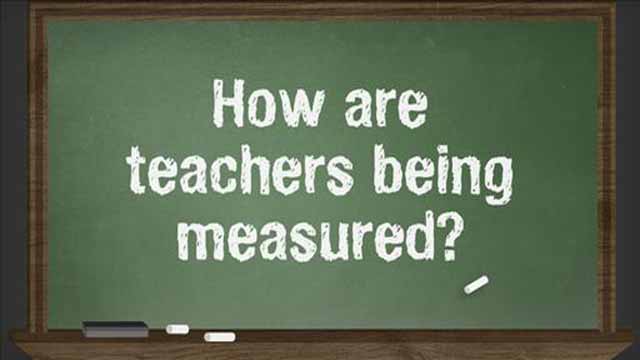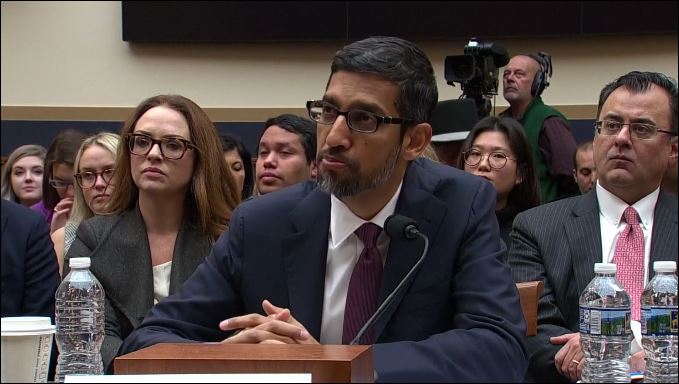Good news for responsible educators was difficult to come by yesterday as the New Jersey State Department of Education released a 104 page document that details the new rules for the teacher evaluation system. All of the anti-reformer’s greatest hits are in the new rules including the new guidelines on teacher retention, setting up an evaluation rubric and stating, rather emphatically, that the state sees no employment ramifications from the new rules.
There’s a great deal to digest in these new rules, but the key to it all is how teachers are going to be evaluated, rated and either retained, let go or brought up on tenure charges for not adequately performing their jobs. Those regulations were issued separately by the DOE and are contained in this memorandum and summarized in this article.
It is here that we learn that a 50-50 split is actually a loaded proposition that is stacked against effective teaching and learning, and assumes that tests can measure how well an educator is doing their job. It is scary, and it’s coming to a school district near you in September.
All public school teachers in New Jersey will be evaluated with a system that divides their performance into two categories: 50% will be based on classroom observations and 50% will be based on student test scores or other measures of student classroom progress. The problem is that these are not equal measures. Quite simply, if all other measures are equal, the test score/student progress half will be used as the tie breaker, which effectively means that whether a teacher keeps their job is more directly related to how well their students perform on tests. I heard Commissioner of Education Christopher Cerf say it in person. I wrote it down.
The further problem is that there is little credible research showing that teacher performance is actually related to how students score on tests. Even Charlotte Danielson, the author of the most widely used evaluation rubric in New Jersey, says so:
I don’t think there is a single teacher who says that student achievement is irrelevant in their performance. Any teacher should be able to demonstrate that the children are learning.
The question is the evidence and how to attribute that to any one teacher. And I can say with confidence that nobody yet has figured out how to do that.
It’s a serious issue, and there are enormous stakes in us getting it right.
Classroom teachers know that they can gain very valuable information from students when they analyze scores or critical thinking assignments. Teachers can asess content knowledge, skill attainment and progress towards educational objectives. What they also know is that making these measures the tie-breaking metric is folly. You’d get more relevant data by noting which students ate an adequate breakfast the day of the test, or asked parents at drop-off how their marriages are working out, their family income, or when they last went to an AA meeting. That will tell me more about potential student performance on the day of the test than what they might have learned and retained since September.
Given that, the new state testing guidelines, courtesy of the PARCC Consortium, should make every teacher whose students will take them anticipate a shiver up the spine. Here’s what’s in store:
Third-graders, for example, now spend roughly five hours, spread over four days, on the New Jersey Assessment of Skills and Knowledge or NJ ASK tests. The new exams will take eight hours, but will be split among nine short sessions.
In Grades 4 and above, the new tests will take nine and a half hours total — over nine sessions — up from about six hours now. Some sections will take place after three-quarters of the school year is over, and other sections at the end of the year.
Think about how many days teachers and students will lose from instruction just to administer the tests. Think about the anxiety that many students will feel not only in March, but in May since the tests will be given 75% of the way through the school year and then again 90% of the way through. Then think about the disruptions in the day, because students will take these tests in short time periods, rendering much of the rest of the day’s instruction irrelevant.
Now let’s factor in the cost and availability of the computers these tests require (though there is a paper version for students whose IEPs require it). The state is recommending one computer per student. Some districts won’t have that, and can’t afford to buy more. The good news is that districts can schedule the tests in shifts so that all students can be accommodated. The bad news is that the tests will be given at all different times of the day, so possible cheating might be an issue (that one fact negates the idea that these are standardized tests). And what if some of your students don’t have sufficient enough keyboarding skills to do well on the tests? The state suggests that this will open up your district’s curriculum to teach more keyboarding. Shall we take that time away from Social Studies? Science? Physical Education? Art? We’re open to suggestions.
These tests are being hailed as ushering in a new era of education and teacher evaluation in New Jersey, but before we get ahead of ourselves, let’s remember two things:
1. The dirty secret behind the new teacher evaluation rules is that only about 20% of New Jersey’s schoolteachers will be evaluated using a standardized test, because the state has only set up tests for elementary grades in math and language arts. All other disciplines will have to come up with a classroom measure that shows student progress. Therefore, the tests will only have limited utility.
2. Standardized tests and other student progress data do not measure a teacher’s effectiveness.
The bottom line, though, is that the 50% of a teacher’s evaluation that uses tests/data will always beat out the 50% based on classroom observations. Always.
If you work in public education in New Jersey, don’t ever forget it.
For more, go to www.facebook.com/WhereDemocracyLives and on Twitter @rigrundfest










